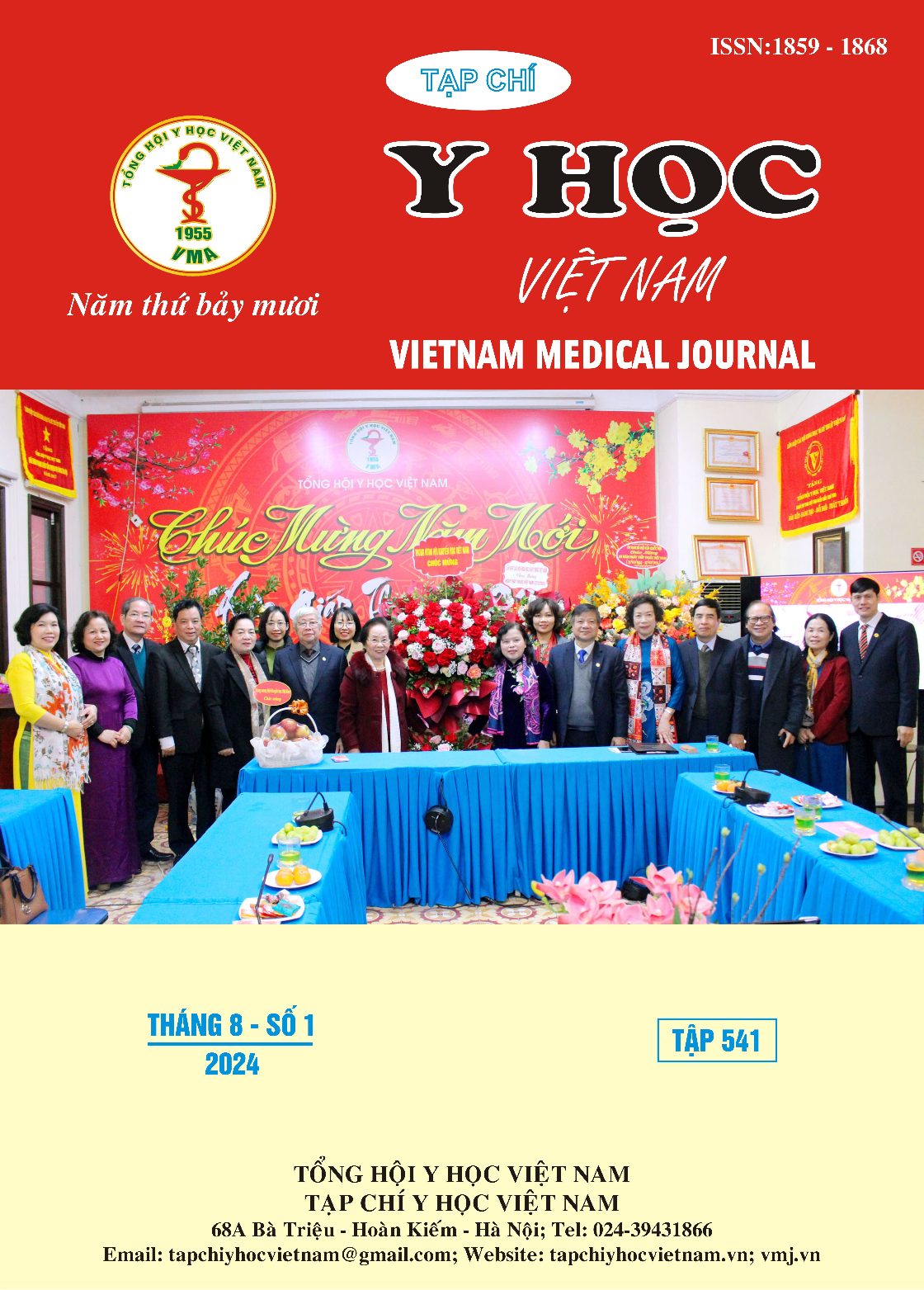EVALUATION OF FACTORS ASSOCIATED TO PATIENTS’ SATISFACTION AFTER CIRCUMCISION
Main Article Content
Abstract
Circumcision is a common procedure worldwide that involves removing the foreskin of the penis. There are many reasons for circumcision, both active and passive on the part of the patient, so men undergoing this procedure have different expectations and therefore have different levels of satisfaction with the results. We conducted the study on 127 circumcised men at the department of Andrology and Sexual Medicine, Hanoi Medical University Hospital to assess satisfaction levels after circumcision and evaluate some related factors. The results showed that patients’ average age was 28.1±7.8, mainly living in urban areas with 79.1% and 74.5% having a level of education from university and above. Overall patient satisfaction with circumcision services accounts for 88.2%. The logistic regression model evaluating factors affecting satisfaction after circumcision showed that preoperative consultation and comorbidities were statistically associated factors with p < 0.05. The study is important for providing solutions to improve the service quality of departments in particular and hospitals in general in the future.
Article Details
Keywords
satisfaction, circumcision
References
2. M. Siev, M. Keheila, P. Motamedinia, and A. Smith, “Indications for adult circumcision: a contemporary analysis,” Can J Urol, vol. 23, no. 2, pp. 8204–8208, Apr. 2016.
3. S. A. Bernaschina-Rivera, A. I. López-Chaim, J. A. Cordero-Pacheco, R. Fernández-Crespo, J. Quesada-Olarte, and R. Carrión, “Circumcision and Sexual Medicine,” Sex Med Rev, vol. 11, no. 4, pp. 412–420, Sep. 2023, doi: 10.1093/sxmrev/qead009.
4. B. J. Morris and J. N. Krieger, “Does male circumcision affect sexual function, sensitivity, or satisfaction?--a systematic review,” J Sex Med, vol. 10, no. 11, pp. 2644–2657, Nov. 2013, doi: 10.1111/jsm.12293.
5. R. A. Wani and B. Y. Mir, “Factors Affecting Parental Satisfaction after Male Circumcision,” J Indian Assoc Pediatr Surg, vol. 28, no. 5, pp. 397–399, 2023, doi: 10.4103/jiaps.jiaps_179_22.
6. M. C. Tye and L. M. Sardi, “Psychological, psychosocial, and psychosexual aspects of penile circumcision,” Int J Impot Res, vol. 35, no. 3, pp. 242–248, May 2023, doi: 10.1038/s41443-022-00553-9.
7. V. Homfray et al., “Examining the association between male circumcision and sexual function: evidence from a British probability survey,” AIDS, vol. 29, no. 11, pp. 1411–1416, Jul. 2015, doi: 10.1097/QAD.0000000000000745.
8. C. H. Chen, W.-M. Cheng, Y.-H. Fan, and T.-P. Chang, “Factors influencing satisfaction with male circumcision in Taiwan,” Sci Rep, vol. 13, p. 2313, Feb. 2023, doi: 10.1038/s41598-022-20140-8.
9. B. J. Morris and J. N. Krieger, “Does male circumcision affect sexual function, sensitivity, or satisfaction?--a systematic review,” J Sex Med, vol. 10, no. 11, pp. 2644–2657, Nov. 2013, doi: 10.1111/jsm.12293.
10. L.-H. Zhu, Q.-S. Ying, M. Yang, L.-F. Zhu, and H.-X. Chen, “The Impact of Chronic Illness on the Patient Experience: Results From a Cross-Sectional Comparative Study in a Comprehensive Tertiary Hospital in China,” Inquiry, vol. 59, p. 00469580221090382, May 2022, doi: 10.1177/00469580221090382.


